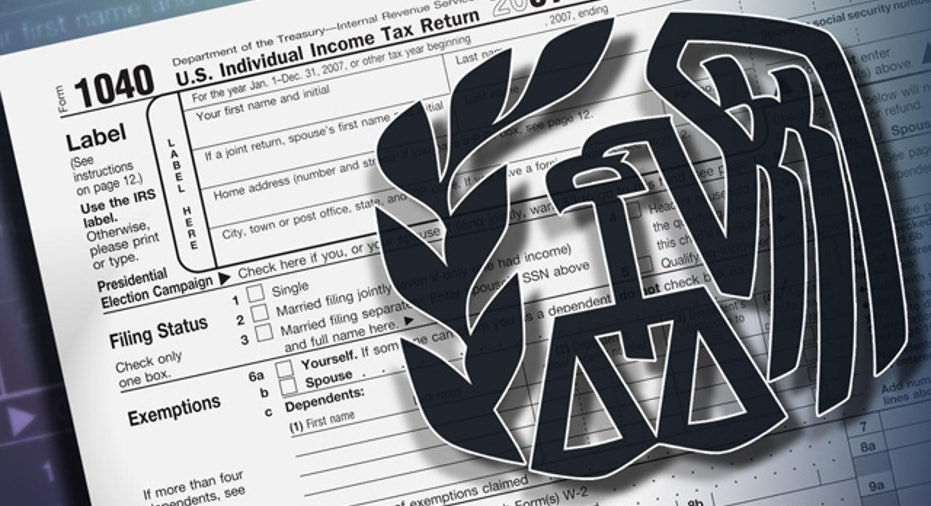The Best Tax Deductions for Job Seekers

Finding a new job can be expensive — particularly for professionals who spend money on pricey career coaches, resume experts and, increasingly, travel to interviews. But some 73% of professionals say they plan to ramp up their job hunt as the economy gains steam, a recent survey from job-and-career website Glassdoor.com survey found.
The good news for those itching to make a move or for cash-strapped layoff victims looking for work: If you’re hunting for a job in your current profession and you itemize on your tax return, you can deduct a whole host of job search expenses, even if you didn’t end up in a new job.
The IRS spells out a few deductions like employment agency services and the costs associated with printing and mailing your resume. But you can deduct a lot more than the basics. What, you ask? How about that $250-per-hour career coach who helped hone your interview and presentation skills or the $500 you paid to have your resume revised and polished? They’re both deductible job-search expenses, according to tax experts.
To take the deduction, your overall miscellaneous deductions (including job search expenses) must add up to more than 2% of your Adjusted Gross Income — and you can only deduct the amount that exceeds that 2%, says Jackie Perlman, a CPA and principal tax analyst at H&R Block’s Tax Institute. Professional association dues and subscriptions to professional journals are just a few of the miscellaneous, non-search-related expenses that can help reach the 2% floor.
If your AGI is $100,000, for example, your miscellaneous deductions must total more than $2,000; if they add up to $2,500, you can deduct $500. (One less-pleasant bit of fine print: Miscellaneous deductions could lower your tax burden to the point that you fall into Alternative Minimum Tax territory, which negates the benefit of claiming such expenses.)
Tax experts say diligent record-keeping to keep track of expenses and pre-planning your job-hunt activities when you travel are key since you’ll need to prove your expenses were primarily job-search related if you — yikes — happen to be selected for an audit. Here’s a look at what you can deduct and how to keep track:
Career coaching: If you use a coach primarily to bolster your efforts to find a job in your field, the fees are deductible. That session you used to work on achieving balance in your life or to decide whether to switch careers, is not. Keep records and notes about each meeting and claim costs associated with sessions directly related to improving the outcome of your job search.
Travel and transportation: Did you drive to a job interview 50 miles away? Fly three states away and spend two nights in a hotel — on your own dime — for informational interviews? Deductible. For mileage (reimbursed at a rate of 50 cents per mile), write down the date, miles driven and job search-related purpose on the day you travel, advises Perlman. Guessing later can prove problematic.
Airfare, hotel bills, and rental car costs associated with traveling for your search are deductible. So are meals on those trips. Log the date and purpose and save the receipts for those expenses. Do the same for tolls, parking and taxi trips related to your hunt. They’re deductible, too.
A word of caution: If you travel to Orlando with the primary purpose of two days worth of informational interviews, but your family flies joins you for two extra days at Disney, deductions are murky. Your roundtrip airfare is usually deductible, says Eva Rosenberg, an enrolled agent and the brains behind tax advice website TaxMama.com. Keep a log of your time and the expenses devoted to job-hunting; if the job search was the primary reason for the trip and not an afterthought, those are deductible.
Conferences: “Finding a job has to be your primary intent” to deduct expenses, says Perlman. If the main reason you attend a professional conference or trade show is to further your job search --maybe you know the networking events are famous for yielding job interviews later--your associated expenses (from conference fees to travel) are deductible, says Rosenberg. Keep a log of costs and how you spend your time in case you’re asked to prove your intent.
Networking events: Deductibility depends on why you attend. “It’s right on the borderline,” says Perlman. “There has to be some proximate connection between what you are doing and getting a job.” Rosenberg says that’s not as hard to prove as it might sound; there’s plenty of research about the importance of networking to a job search. Translation: The deduction survives an audit, if you keep a log and detail how attending relates to your search — or to a business purpose, which counts as a miscellaneous deduction.
Childcare expenses: Experts disagree on this one. But Rosenberg says if you keep clear records — a calendar that designates which hours you used a sitter for job-search related activities, like an interview or job fair — it’s a legitimate deductible expense.
Phone bills. You’ll need to show you incurred an extra expense, says Perlman. If you have a plan that allots you a certain number of minutes and charges you for extra time, those 30-minute calls to a recruiter or hour-long phone interviews might push you over the limit. Add up job-search related calls on statements where you incurred extra charges. You can deduct the overage related to the search, says Rosenberg.
The rest: Keep receipts for stamps; envelopes; copying charges and paper costs for printing your resume, cover letter or other materials for your job search; faxing costs at your local Kinko’s; cost of attending a job fair (that includes any entry fee or transportation expenses); and any other items you think might be related to your job search. A tax pro can tell you what counts, if you have the receipts.



















